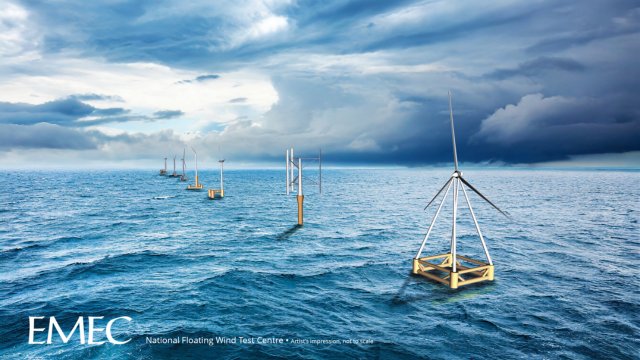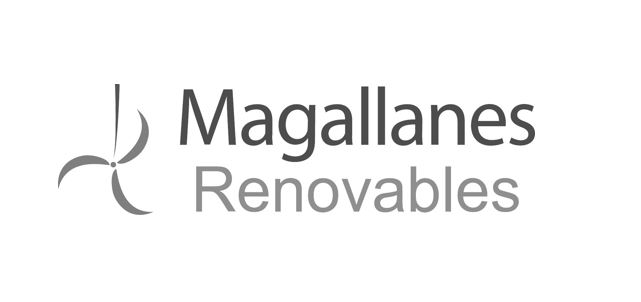White paper details needs case for UK National Floating Wind Test Centre

The European Marine Energy Centre (EMEC) and Renewable Risk Advisors (RRA) have published a white paper setting out the needs case for a National Floating Wind Test Centre in the UK.
The white paper states the need for a dedicated ‘National Floating Wind Test Centre’ to fully prove floating technologies in metocean conditions that are truly representative of the locations into which they will be deployed.
The paper compares 5-year average and 100-year storm event conditions at existing and proposed floating wind test sites across Europe with the metocean resources that project developers will face at typical ScotWind, INTOG, and Celtic Sea sites.
This analysis shows that existing European sites are insufficiently energetic to be truly representative of commercial floating wind projects in UK waters. The authors argue that the UK needs its own dedicated floating wind test centre to adequately prove and de-risk floating wind technologies for project insurability and bankability.
A dedicated test site will also help ensure that the UK captures and retains the innovation benefits and cements its leading position in the floating wind sector.
EMEC has been investigating and examining options for a national floating wind test centre since early 2020 and has identified a specific site 20 km west of Orkney which it believes will be the perfect location. The site has ideal water-depths and seabed conditions, and consistent mean wind-speeds well in excess of 10 m/s.
To progress the test site’s development EMEC has a 60 MW grid connection offer to connect the site into Orkney’s soon-to-be-connected 220 MW cable to the Scottish mainland and thus the UK national grid. Given timely investment, the site can be ready and energised in time to meet the needs of most planned floating offshore wind projects in UK waters.
Michael Bullock, Director, Renewable Risk Advisers Ltd. co-authored the white paper:
“A National Floating Wind Test Centre is essential to accelerate project insurability and therefore financeability. It addresses the very particular needs of certification bodies and insurers, who typically will be looking for a minimum of 8,000 hours of normal operation ‘in a representative environment’ to demonstrate the technology is no longer a prototype and can withstand a harsh ocean environment. Insurers rely heavily on this project certification to address and assess the fitness for purpose of designs given particular metocean conditions at a project site.
“Data obtained solely from a less energetic location will make project certification far more problematic, and insurers are likely to be very uncomfortable with engineering calculations extrapolated from numbers they may see as non-representative.
“The outcome of this is that if you test at a less energetic location your technology might not be considered sufficiently ‘proven’ for deployment into a ScotWind, INTOG or Celtic Sea project and your level of insurance might be reduced, and/or premiums and deductibles increased, with more of the risk and consequence of failure falling on the developer.”
Stuart Brown EMEC Associate for Floating Wind added:
“EMEC is no stranger to innovation and is well-practised in hosting novel clean energy technologies, and to this day is the only UKAS-accredited centre in the world for testing marine energy technologies to IEC standards.
“Floating offshore wind is still in its infancy and EMEC’s 20 years’ experience helping wave and tidal energy technology developers tells us that there is still a great deal more that floating offshore wind technology and project developers will need to refine, revise, scale-up, test and prove as part of a complex multi-unit energy harvesting and production system.
“Nobody should assume we will get this right first time, but the pressure is on to achieve net zero and energy security as quickly as we can. We need to be appropriately cautious, but we also need to get on with it. A national floating wind test centre will allow rapid progress at comparatively low cost, and will help bring the economic and innovation know-how benefits to the UK in good time for the explosion of floating offshore wind projects that will be ScotWind, INTOG and the Celtic Sea.
“Beyond that, developers who prove their technologies at the energetic test site we’ve identified ought not to need to test again to deploy into less energetic locations, saving time and money, and providing valuable ‘test once deploy anywhere’ export benefits for project and technology developers looking to build global floating wind portfolios.”
The concept design for the floating wind demonstration site has been supported by the Interreg North West Europe AFLOWT project which aims to accelerate market update of floating offshore wind technology.






